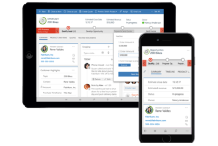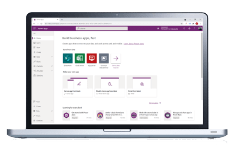Table of contents
- Opening
- 1. Detail Out the Project Requirements
- 2. Develop a Project Brief
- 3. Stay in Touch With Project Stakeholders
- 4. Create the Plan
- 5. Set Up a Risk Response Team
- 6. Organize Your Communications Network
- 7. Maintain a Schedule
- 8. Document and Track Everything
- 9. Ask Your Team What They Need
- 10. Hold a Wrap-up Meeting
- Utilize Project Management Best Practices
- Related
Opening
Utilizing project management best practices often helps yield the best results when managing and executing a project.
Unfortunately, when you're managing a project, there are a lot of tips and tricks out there that claim to make things much simpler. However, it's important to understand the basics before anything else.
How much of the project do you have planned out before you reach out to stakeholders? Do you perform sufficient communications with your team members or only reach out to them for updates? And does everyone understand all of the project requirements?
1. Detail Out the Project Requirements
Consider everything you'll need for your project, such as resources, potential hurdles, and the time it'll take. You may have to outsource certain aspects of the work if your team doesn't have the necessary resources for complex projects. Just remember to check the terms of service beforehand.
However, your company may not be comfortable hiring outside workers, in which case you'll have to recalibrate the scope of the project. It's also important to understand how this specific project benefits your company and its clients.

2. Develop a Project Brief
A project brief is a short description of key elements involved in your project. It's meant to give a 30,000-foot, high level overview of the overall scope and what you'll need to complete it. You can use it to provide key information to everyone beforehand as well as review it later on in the process.
At the bare minimum, expect to include the name of the project, who the client is, an overview, and your objectives.
3. Stay in Touch With Project Stakeholders
This step should arguably take place before you start your project brief. Get in touch with all of your project stakeholders to communicate your goals and objectives as well as roles and responsibilities. The stakeholders include team members, sponsors, and your clients.
If you're pitching the idea to your company's higher-ups, make use of tools like Power BI to analyze your data and visualize it.
4. Create the Plan
The project brief is short and to the point. In comparison, the project plan explains all the little details that will go into completing your project, including scheduling, budgeting, required personnel, and the work breakdown structure.

When developing your plan, spread out the workload evenly among your team members. You don't want to lose momentum if one person finds themselves struggling to complete something.
Although the plan takes time to write out, it'll prove an essential part of monitoring the overall progress.
5. Set Up a Risk Response Team
You never really know what will go wrong with your project. Some of the top reasons projects end up failing are due to changes in a company's priorities, the goals, or its requirements. Pivoting without a plan is difficult at best.
Create a risk response team to help a project remain in the green and deal with any issues that pop up.
6. Organize Your Communications Network
As a project manager you know effective project management requires establishing clear lines of communication set up inside your company. It's essential for managing expectations, communicating your needs, and keeping everyone on task.
Keep all your internal communications in one centralized space to avoid missed messages. Use a shared folder if you want everyone to have open access to the same documents.
With remote work becoming more common, direct chat and video chat options help keep all the team members connected.
7. Maintain a Schedule
Completing a project on time involves managing deadlines and your team's workload. You may think that giving them more tasks will speed things up, but you'll kill their morale and efficiency.

You need to set a schedule that's realistic and achievable. Hopefully, you've already planned out goalposts in advance in your project plan.
It's okay if your project isn't progressing as quickly as you'd hoped. If that's the case, keep in touch with your stakeholders to let them know how things are going.
8. Document and Track Everything
One of your most important jobs as a project manager is to keep track of everything happening once your project starts. Your team leaders should send routine progress reports detailing their current work and any issues they have.
In addition, documentation and data can help you make better decisions later on in future projects.
Microsoft 365, and more specifically Microsoft PPM, is one suite of apps that offers project management software tools, including a Timeline view and a visual roadmap.
9. Ask Your Team What They Need
A project manager isn't expected to know everything about an overall project or what their team needs. Taking corrective action is all a part of the process. However, the project manager should ask for regular feedback in case there are any changes they need to make as a leader.
It's easy to forget that your team members are people with lives and stress levels. Talk with them to learn more about what they need in order to do the best work. You should expect some criticism, but it'll help you grow as a leader.
10. Hold a Wrap-up Meeting
You may be tempted to move straight onto the next project when you're done with the current one. However, one of the most important project management best practices is to take a beat to reflect and review at a wrap-up meeting.

We've all seen projects fail. Ensuring we learn throughout the process and apply those lessons to the next project helps ensure project success? How could you have done things differently?
Always work on optimizing your work management flow, but also acknowledge that things may change depending on your available resources at the time.
Utilize Project Management Best Practices
As a project manager, constantly pushing back deadlines isn't a good show of your management skills. Even worse is finding out that you don't have the resources to complete a project halfway into it.
Following these ten project management best practices are key to optimizing your project development, risk management, and ensure a successful project. It all comes down to proper planning, communication, and monitoring the situation.
If you find yourself struggling to apply these practices, reach out to us for help. Integent offers Microsoft Project Services, training, consulting, and support.















